Tag:
contraceptive methods
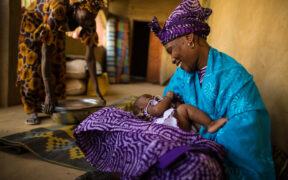
Gain insights on the vital role of Senegal's self-care guidelines and their impact on reproductive health goals. And, delve into the intersection of knowledge management and self-care guidelines, showcasing the collaborative efforts between Senegal and Knowledge SUCCESS.

Obtenez des perspectives sur le rôle essentiel des directives d'auto-soins du Sénégal et leur impact sur les objectifs de santé reproductive. Plongez également dans l'intersection entre la gestion des connaissances et les directives d'auto-soins, mettant en lumière les efforts collaboratifs entre le Sénégal et Knowledge SUCCESS.
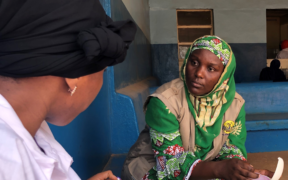
Le 23 février 2022, le projet Expanding Effective Contraceptive Options (EECO) dirigé par WCG Cares avec Population Services International (PSI) et financé par l'USAID, et le Collaboratif pour l’Accès au DMPA-SC de PATH-JSI ont organisé un webinaire sur l’introduction et la mise à l’échelle des méthodes de planification familiale (PF) auto-soins en Afrique subsaharienne.
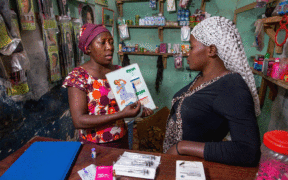
In July 2021, USAID’s Research for Scalable Solutions (R4S) project, led by FHI 360, released the Drug Shop Operators' Provision of Injectable Contraception manual. The handbook shows how drug shop operators can coordinate with the public health system to safely provide an expanded method mix that includes injectables, as well as training for clients on self-injection. The handbook was developed in Uganda in partnership with the National Drug Shop Task Team but can be adapted to various contexts in Sub-Saharan Africa and Asia. Knowledge SUCCESS’ contibuting writer Brian Mutebi talked to Fredrick Mubiru, Family Planning Technical Advisor at FHI 360 and one of the key resource persons involved in the development of the handbook, about its significance and why people should use it.
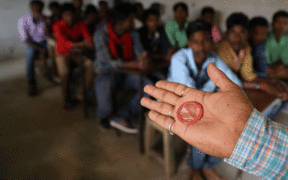
Approximately 121 million unintended pregnancies occurred each year between 2015 and 2019. When used correctly, female condoms are 95% effective at preventing pregnancy and sexually transmitted infection. Male (external) condoms provide a nearly impermeable barrier to particles the size of STI pathogens and HIV and are 98% effective at pregnancy prevention when used properly. Condoms remain the most used family-planning method among youth and offer protection from unintended pregnancy, STIs, and HIV.
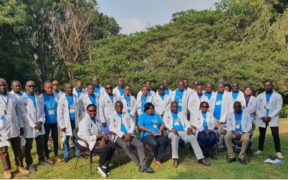
Working alongside family planning advocates, Jhpiego Kenya applied the nine-step SMART advocacy approach to engage stakeholders in the creation of a new pharmacist training package. The updated curriculum includes that includes instruction on providing contraceptive injectables DMPA-IM and DMPA-SC.
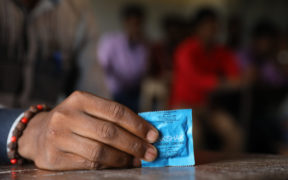
Many people forget the power of condoms as a family planning tool. This collection reminds us how condoms remain relevant even as FP/RH innovations arise.
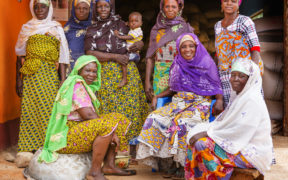
A recent Global Health: Science and Practice (GHSP) article examined the use of fertility awareness-based methods (FABMs) in Ghana to gain knowledge on women who use them to avoid pregnancy. Few studies in low- and middle-income countries have estimated the use of FABM. Understanding who is using these methods contributes to family planning/reproductive health program professionals’ ability to support women in choosing their preferred methods.
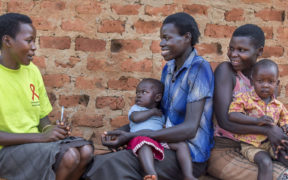
Health care systems across the globe have always been based on a provider-to-client model. However, the introduction of new technology and products, and the increasing ease of access to information, has caused a shift in how health services can be delivered—placing clients at the center of health care. Various health areas, including sexual and reproductive health and rights (SRHR), have embraced self-care interventions. These methods increase access to and use of essential health services. This is especially important as health care systems become increasingly overburdened, coupled with the urgency to respond to individuals’ and communities’ SRHR needs across all life stages.
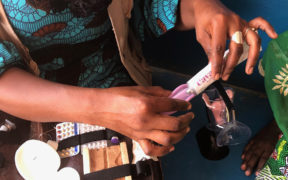
The Expanding Effective Contraceptive Options (EECO) project is delighted to partner with Knowledge SUCCESS to bring you this curated collection of resources to guide the introduction of new contraceptive products.













